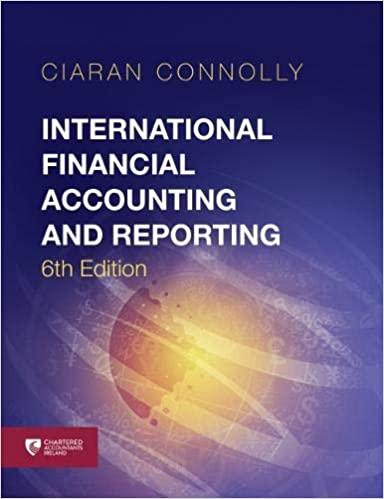Answered step by step
Verified Expert Solution
Question
1 Approved Answer
10. In January, Dylan purchased 2,000 shares of Happy Day Mutual Fund for $20,000 ($10 per share). In June, Dylan received an additional 100

10. In January, Dylan purchased 2,000 shares of Happy Day Mutual Fund for $20,000 ($10 per share). In June, Dylan received an additional 100 shares as a dividend, in lieu of receiving $1,000 in cash dividends. In December, the company declared a two-for-one stock split. Dylan received an additional 2,100 shares, but there was no option to receive cash. At the time of the stock dividend in December and at the end of the year, the fund shares were trading for $8 per share. Dylan did not sell any shares during the year. a. What is Dylan's gross income from the 100 shares received in June? b. What is Dylan's gross income from the receipt of the 2,100 shares as a two-for-one stock split in December? c. What is Dylan's basis in his stock at the end of the year? d. Should Dylan be required to recognize any gross income this year, even though the fair market value of his investment at the end of the year was less than the fair market value at the beginning of the year? Explain. 11. TJ, who was experiencing financial difficulties, was able to adjust his debts as follows: TJ is an attorney. TJ owed his uncle $25,000. The uncle told TJ that if he serves as the executor of the uncle's estate, TJ's debt will be canceled in the uncle's will. TJ borrowed $80,000 from First Bank. The debt was secured by land that TJ purchased for $100,000. TJ was unable to make his payments, so the bank foreclosed and took ownership of the land. At the time of foreclosure, the liability was still $80,000, which was also the fair market value of the land. TJ owes his mother $3,000 for various expenses over the past few years, but upon hearing of his financial struggles, she forgives the debt and bakes him cookies. Determine the tax consequences to TJ. 12. William has been offered a job at a salary that would put him in the 24% marginal tax bracket. In addition to his salary, he would receive health insurance coverage. Another potential employer does not offer health insurance but has agreed to match the first offer on an after-tax and insurance basis. The cost of health insurance for William is $9,000 per year if he acquires it privately. How much more in salary must the second potential employer pay so that William's financial status will be the same under both offers?
Step by Step Solution
There are 3 Steps involved in it
Step: 1

Get Instant Access to Expert-Tailored Solutions
See step-by-step solutions with expert insights and AI powered tools for academic success
Step: 2

Step: 3

Ace Your Homework with AI
Get the answers you need in no time with our AI-driven, step-by-step assistance
Get Started


